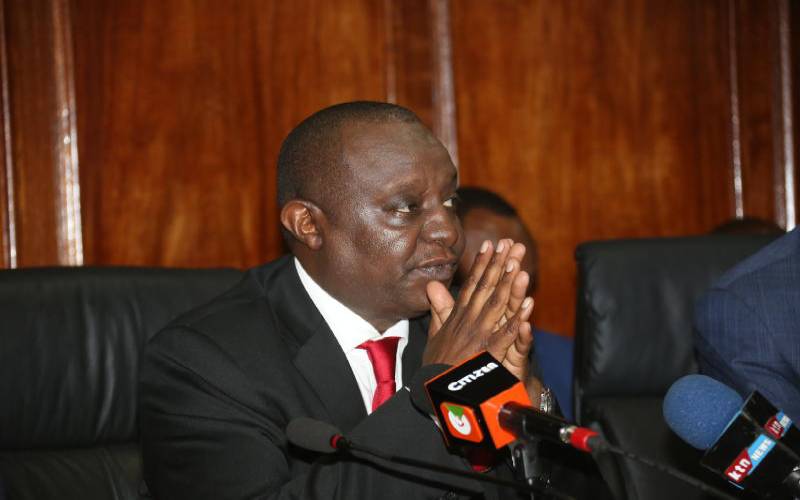×
The Standard e-Paper
Stay Informed, Even Offline

Treasury Cs Henry Rotich addressing press conference after reading the 2018-2019 Budget at Parliament on Thursday. [File, Standard]
The looming global recession will hit Kenya where it hurts the most.